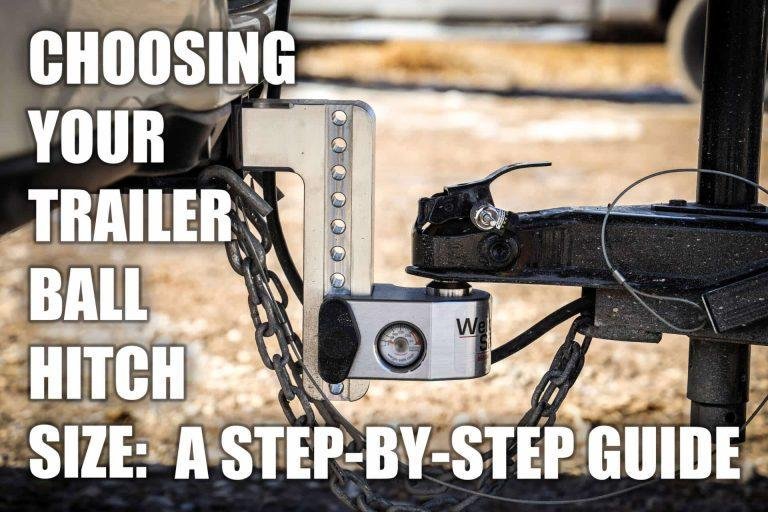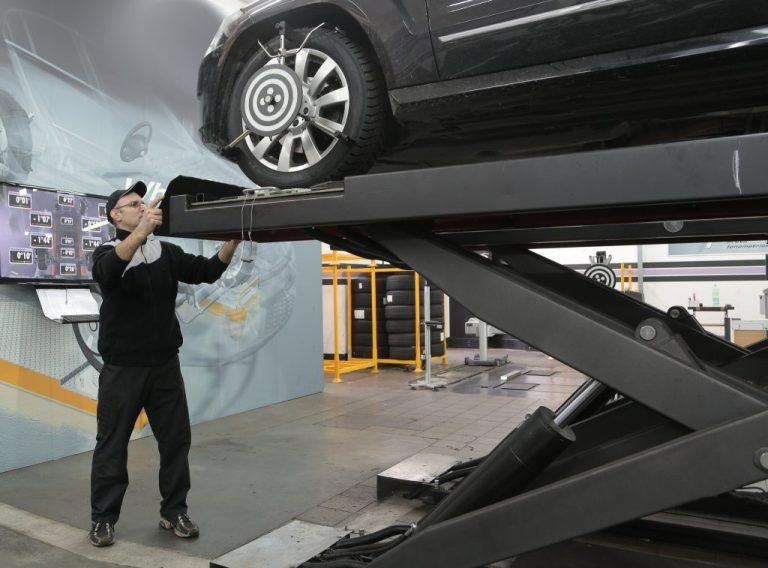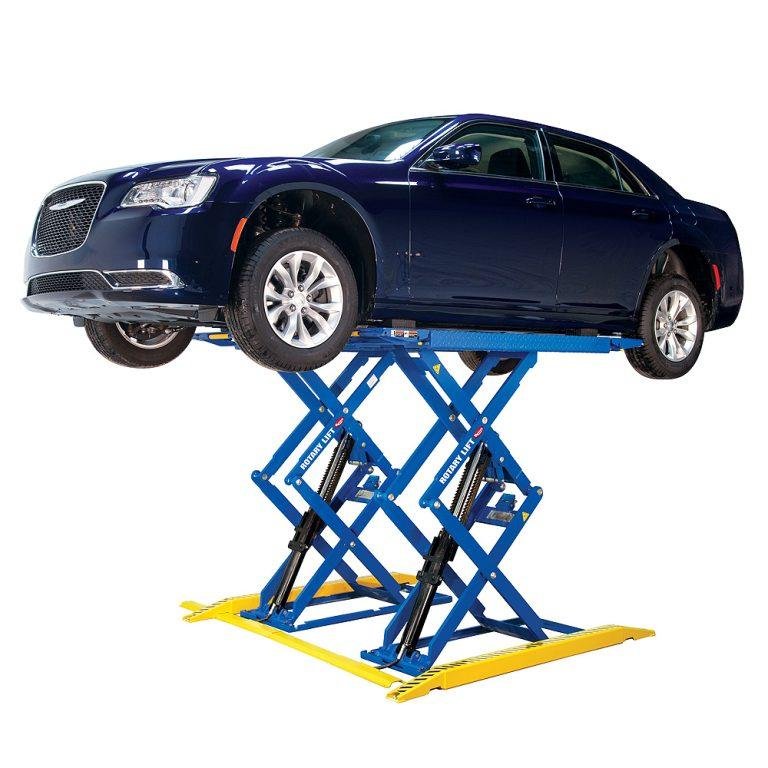No, you cannot attach a trailer to a car without a hitch. Without a hitch, there is no secure connection for the trailer to the car.
Using a hitch is essential for safely attaching a trailer to a car. A hitch provides a secure connection point between the car and the trailer, allowing for safe towing. Without a hitch, the trailer would not be properly attached, increasing the risk of accidents and damage to both the car and the trailer.
Therefore, it is crucial to have a hitch installed on your car if you plan on towing a trailer. By doing so, you can ensure a safe and secure connection between the car and the trailer, making it possible to tow effectively.

Credit: www.amazon.com
The Importance Of Using A Hitch For Trailer Attachment
Attaching a trailer to a car without a hitch is not recommended as it can pose serious safety risks. A hitch provides a secure connection between the vehicle and the trailer, ensuring stability and control while towing. It’s important to use a hitch designed for your specific vehicle to ensure a safe and reliable trailer attachment.
Understanding The Role Of A Hitch In Safe Trailer Attachment
- A hitch is a crucial component for safely attaching a trailer to a car. Here’s why:
- Transfer of weight: The hitch acts as a connection point between the car and the trailer, enabling the transfer of weight from the trailer to the car’s chassis.
- Stability: By distributing the weight evenly, the hitch helps to maintain stability and balance, reducing the risk of trailer sway during travel.
- Control: The hitch allows for effective steering and braking control, ensuring the driver can safely maneuver the car and trailer combination.
- Structural support: In addition to weight distribution, the hitch provides structural support, enabling secure attachment and minimizing the possibility of detachment during transit.
Exploring The Potential Risks Of Not Using A Proper Hitch
- Neglecting to use a proper hitch can pose several risks:
- Loss of control: Without a hitch, the trailer can become disconnected from the car, leading to loss of control, especially at higher speeds or during sudden maneuvers.
- Uneven weight distribution: The absence of a hitch can result in improper weight distribution, which can cause the car to sag in the rear and affect steering, traction, and braking.
- Increased swaying: When a trailer is not properly attached with a hitch, it can sway from side to side, making it difficult for the driver to maintain control.
- Damage to the car: Without a proper hitch, the weight of the trailer can place excessive strain on the car’s rear end, potentially leading to structural damage and costly repairs.
The Legal Requirements For Trailer Attachment
- When it comes to attaching a trailer to a car, certain legal requirements are necessary to ensure safety and compliance. These include:
- Hitch type: The hitch used must be compatible with the car’s make, model, and towing capacity. It’s important to choose the appropriate hitch type based on manufacturer guidelines.
- Weight capacity: The hitch should have a weight rating that is sufficient for the trailer being towed, considering both the loaded weight of the trailer and any additional cargo.
- Lighting and signaling: The trailer must have functioning lights and signaling devices, including brake lights, turn signals, and reflectors, in compliance with local traffic laws.
- Registration and licensing: Depending on jurisdiction, trailers may require separate registration and licensing, including the attachment of visible registration plates.
- Safety devices: Some regions may mandate the use of safety devices such as trailer brakes, breakaway systems, or safety chains to prevent complete separation in case of hitch failure.
By understanding the importance of using a hitch for trailer attachment, exploring potential risks of not using one, and complying with legal requirements, you can ensure a safe and hassle-free towing experience. So, never underestimate the significance of a properly installed hitch when preparing to tow your trailer.
Alternative Methods For Attaching A Trailer Without A Hitch
Attaching a trailer without a hitch is possible with alternative methods. Explore options like bumper hitches, pintle hooks, or custom-made adapters for secure trailer connections to your car.
If you find yourself needing to attach a trailer to your car but don’t have a hitch installed, don’t worry! There are alternative methods available that can get the job done. Whether you’re dealing with a larger trailer or a smaller one, there are solutions that can help you transport what you need without the need for a traditional hitch.
Below, we explore two common alternative methods for attaching a trailer without a hitch and discuss the advantages and disadvantages of each.
Utilizing A Gooseneck Hitch For Larger Trailers:
- A gooseneck hitch is a viable option for those towing larger trailers, such as livestock trailers or large utility trailers.
- This type of hitch is designed to attach to a pickup truck bed, rather than the rear of the vehicle, providing increased stability and control.
- Advantages:
- Offers superior weight distribution, resulting in better towing stability, especially for heavy loads.
- Allows for tighter turns and maneuverability due to the placement of the hitch point closer to the vehicle’s axle.
- Provides a higher weight capacity compared to bumper-mounted hitches.
- Disadvantages:
- Installation can be more complex, often requiring professional assistance or modifications to the pickup truck bed.
- Limited to vehicles with a pickup truck bed, excluding smaller cars or suvs.
- The gooseneck hitch can restrict access to the truck bed while the trailer is attached.
Exploring Bumper-Mounted Hitches For Smaller Trailer Attachment:
- Bumper-mounted hitches are suitable for towing smaller trailers, such as lightweight campers or small utility trailers.
- These hitches attach directly to the vehicle’s bumper, offering a convenient alternative solution.
- Advantages:
- Easy installation process without requiring major modifications or professional assistance.
- Suitable for a wider range of vehicles, including cars and suvs.
- Affordability compared to other hitch options.
- Disadvantages:
- Limited weight capacity, making them unsuitable for towing heavy or larger trailers.
- May compromise the vehicle’s ground clearance, potentially leading to scraping or damage when encountering uneven terrain.
- Less stability compared to traditional hitches, resulting in increased trailer sway.
By exploring alternative methods such as gooseneck hitches for larger trailers and bumper-mounted hitches for smaller trailers, you can still accomplish trailer attachment without a hitch. Consider the advantages and disadvantages of each method to determine the most suitable solution for your specific towing needs.
Remember to prioritize safety and consult professionals when needed to ensure proper installation and adherence to towing guidelines.
Safety Considerations For Trailer Attachment Without A Hitch
Attaching a trailer to a car without a hitch can compromise safety. Without a proper hitch, the trailer may detach during transit, causing accidents and damage. Always ensure the correct equipment is used for safe trailer attachment.
When it comes to attaching a trailer to a car, having a hitch installed is the safest and most secure method. However, there may be situations where you find yourself needing to attach a trailer without a hitch. It’s essential to understand the limitations and risks of alternative methods to ensure the safety of yourself, your vehicle, and others on the road.
Understanding The Limitations And Risks Of Alternative Methods
Here are some important points to consider when attaching a trailer without a hitch:
- Weight distribution: Without a hitch, the weight of the trailer may not be distributed properly, leading to stability issues on the road.
- Structural integrity: Alternative methods like using a cargo carrier or bumper-mounted tow bars may not provide the same level of structural integrity as a hitch, increasing the risk of accidents.
- Braking capabilities: Without a proper hitch and electrical connection, the trailer’s braking system may not function effectively, which can compromise your ability to stop safely.
- Legal requirements: Some regions have specific regulations regarding trailer attachment, and using alternative methods without proper compliance may result in fines or legal trouble.
Tips For Ensuring Proper And Secure Trailer Attachment Without A Hitch
If you find yourself in a situation where attaching a trailer without a hitch is necessary, here are some tips to ensure a proper and secure connection:
- Choose the right alternative method: Research and select a reliable alternative method that suits your trailer’s requirements and your car’s capabilities.
- Follow the manufacturer’s instructions: Read and understand the instructions provided by the alternative method’s manufacturer. Ensure that you follow them precisely for a safe attachment.
- Use additional safety measures: Consider using additional safety measures like safety chains and straps to provide extra support and stability.
- Perform a thorough inspection: Before hitting the road, inspect the alternative attachment method and trailer to ensure everything is securely fastened and in proper working condition.
- Test the connection: Conduct a slow-speed test drive to assess the stability and handling of the trailer. Pay attention to any unusual sounds or movements during this test drive.
Common Mistakes To Avoid When Using Alternative Trailer Attachment Methods
While using alternative methods for trailer attachment can be a temporary solution, it’s important to be aware of common mistakes that should be avoided to maintain safety:
- Overloading the trailer: Ensure that you stay within the recommended weight limits of both your vehicle and the alternative attachment method.
- Neglecting regular maintenance: Just like with a hitch, alternative methods require regular inspections and maintenance to ensure their safety. Check for any signs of wear and tear and address them promptly.
- Not considering visibility: Alternative attachment methods may obstruct your rearview or side mirror visibility. Take this into account and make any necessary adjustments to ensure a clear view of the road.
- Ignoring local regulations: Always comply with local regulations concerning trailer attachment. This includes adhering to height, width, and safety requirements.
Remember that attaching a trailer without a hitch comes with inherent risks and limitations. If possible, it is always recommended to have a hitch installed for safer towing experiences. However, should the need arise to use alternative methods, following safety guidelines and practicing caution will help mitigate potential hazards.
Stay informed, be diligent, and prioritize the safety of yourself and others on the road.
Frequently Asked Questions On Can You Attach A Trailer To A Car Without A Hitch?
How Do You Tow Something Without A Trailer Hitch?
To tow something without a trailer hitch, you have a few options. One is using a tow dolly, a small trailer that supports the front wheels of the vehicle being towed. Another option is using a tow bar, which connects the towed vehicle to the towing vehicle with a set of bars.
Additionally, you could use a tow strap or rope, but this method should only be used for short distances and at slow speeds. It’s important to note that towing without a trailer hitch may not be as secure or stable as using a hitch, so proceed with caution and follow all safety guidelines.
Always consult your vehicle’s manual and consult a professional if you’re unsure about the towing capabilities of your vehicle.
What Do I Need To Attach A Trailer To My Car?
To attach a trailer to your car, you will need four essential items: a tow hitch, a trailer tongue, safety chains, and a wiring harness. A tow hitch is a device that connects your car’s frame to the trailer, allowing it to be towed securely.
The trailer tongue, on the other hand, is the part of the trailer that attaches to the tow hitch. It provides stability and control while towing. Safety chains are crucial for added security. They are attached to your car’s frame and the trailer’s tongue, preventing the trailer from detaching in case the hitch fails.
Lastly, a wiring harness is necessary to connect the lights on your car to the trailer’s lights. This ensures that the trailer’s lights function properly, signaling your turns and brakes to other drivers on the road. By having these items in place, you can safely and effectively attach a trailer to your car.
Can You Hook A Trailer To A Car?
Yes, you can hook a trailer to a car. To do this, use a hitch installed on the rear of the car. The hitch has a receiver where you can connect the trailer’s coupling device. Make sure to choose the right hitch for your car and trailer, considering their weight capacities and compatibility.
It’s important to secure the connection by using safety chains, ensuring they are crossed underneath the hitch. Additionally, don’t forget to connect the trailer’s electrical system to the car’s lights and brakes, using an appropriate wiring harness. Before towing, check that your car’s brakes, tires, and suspension are in good condition to handle the added weight.
Remember to drive cautiously, allowing for longer stopping distances and being mindful of the trailer’s length.
Can You Tow A Car Without Tow Bar?
No, it is not safe to tow a car without a tow bar. Towing a car requires a secure connection between the two vehicles, which a tow bar provides. Without a tow bar, there is a risk of the towed vehicle becoming detached, causing accidents and damage.
It is essential to use a tow bar designed for towing purposes to ensure safety and proper control. Using alternative methods, such as ropes or chains, is not recommended as they may not provide a strong and reliable connection. Always follow the manufacturer’s guidelines and use the appropriate equipment when towing a vehicle to prevent any mishaps.
Conclusion
Attaching a trailer to a car without a hitch is not recommended. While it may be possible in some cases to find alternative solutions, such as bumper-mounted receivers, it is crucial to prioritize safety when towing a trailer. A hitch provides a secure and stable connection between the car and the trailer, ensuring proper weight distribution and control while on the road.
Without a hitch, there is a higher risk of accidents, damage to the car or trailer, and potential legal issues. It is always recommended to consult with professionals or experienced individuals in the field before attempting to tow a trailer without a hitch.
By investing in a proper hitch and following the necessary safety guidelines, you can have peace of mind and enjoy a smooth and secure towing experience.






